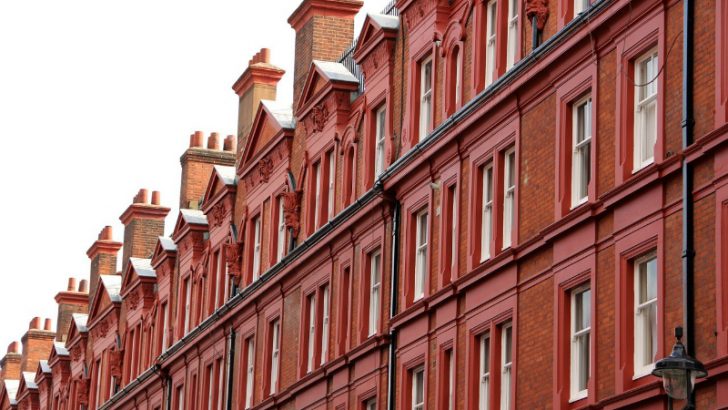TrustMe (Universal TrustMe Engine Limited) has announced blockchain-enabled property exchanging and land registering. For the first time, buyers and sellers will be able to trade UK property on a peer-to-peer platform which utilises blockchain technology.
TrustMe, a blockchain applications company, aims to revolutionise the real estate market. The key lies in enabling fractional trading of individual properties. This will use ‘asset backed certificates’ on linked, Bitcoin denominated, global property exchanges.
Antony Abell, co-Founder and Managing Director of TrustMe, commented: “The London property market, which has, for many people, long been prohibitively expensive, needs to be democratised. The TrustMe Property Exchanges will allow existing homeowners to unlock the value of their own house or properties and to use these assets as a form of stored liquid wealth, similar to a 30-90 day bank account, by trading as much or as little of their asset as they wish in an efficient, transparent and auditable manner. It has only been the recent advent of the public blockchain that has enabled the trust that people need to be able to allow the most valuable assets that most will ever have in their lives to be leveraged in this way.”

TrustMe Property Exchange (TPX) and Blockchain Land Registry (BLR)
The TrustMe Property Exchange (TPX) Limited and Blockchain Land Registry (‘BLR’) Limited are what will enable homeowners to trade fractional shares (what TrustMe calls ‘property certificates’) in their properties. Owners can sell fractional shares on an open market. This, in effect, creates a new type of trade-able asset class.
Buyers (clients to TrustMe) on its property exchange will be able to purchase up to 49% of the value of a property or residential home. The 51% (or more) owner-occupier continues to live in, manage and look after the underlying property. Buyers can fund their purchase with either Bitcoins or conventional fiat currency.
More on BLR
The BLR is a trust created to hold the equitable interest in properties on behalf of the interested parties (the seller or buyer of a property). The BLR acts on behalf of the interested parties to ensure secure transfer of property rights on execution of sale transactions.
More simply, in the TrustMe vision, “your home is now your own personal land/property bank”. Value can accumulate and be stored for the owners of that property. Instead of a mortgage, for example, a buyer could find a third party backer to participate in the purchase. Both would profit on the eventual sale of the property. This would avoid paying interest to a bank or building society. Or an existing owner might ‘cash-in’ on increased property values, by selling a percentage of his or her home.
After registering a property on the BLR, the property is “blockified”. This ‘breaks up’ the property into smaller equity pieces for trading. With initial assets being residential properties, there is a minimum single block of 51% of the equity held by the property’s named owner. The owner agrees to take on the liability to maintain and insure the property.
The other blocks, representing the remaining 49% (or smaller units) represent the opportunity for buyers. The minimum unit size, for London, will be £250.
BLR’s need for a solicitor
As part of the BLR registration there must be involvement by a solicitor (for the seller). It is the solicitor who will create certificates which evidence the shares of the investment in the property.
In effect, ‘blockification’ confirms that assets are controlled by the owner when placed in the blockchain. In turn, the blochchain operates in conjunction with the relevant government land registry. As such the BLR confirms the precise ownership of any of the property assets at any time – due to the sequential and immutable nature of the control of the blockchain.
TrustMe roll out and rationale for London first
The first exchange will roll out in London in October. Parallel TrustMe™ Property Exchanges will launch in Toronto and New York. TrustMe hopes to announce other cities over the rest of the year, once it establishes regulatory compliance in each location.
London is a logical first choice location for the initial exchange; it:
- already hosts a £2 trillion property market.In addition
- possesses established property laws, rights and processes
- is a popular location for many international investors seeking to acquire property.
What does this mean
Despite TrustMe’s assertions that it “wants to ‘democratise’ ownership – by removing the capital threshold which has restricted the owning of property to a privileged few by opening-up a new asset class”, it seems probable that most buyers will be largely non-UK ones. The attraction for them may lie in using a Bitcoin denominated property exchanges to improve their investment’s liquidity.
For UK property owners TrustMe ‘may’ offer a way to realise part of the value in their homes. However, ‘caveat venditor’ (seller beware). There will not be many mortgage companies that will celebrate to discover the property they have lent against is no longer wholly owned by the mortgagee. In practice, this means that TrustMe is for those who wholly own their properties, in which case it might release some value.
All in all, TrustMe presents a challenge. Conceptually it opens up possibilities (though the attraction for a buyer of owning 40% of a house is puzzling). Yet the use of the BLR to hold the unalterable details of fractional ownership is ingenious.


























